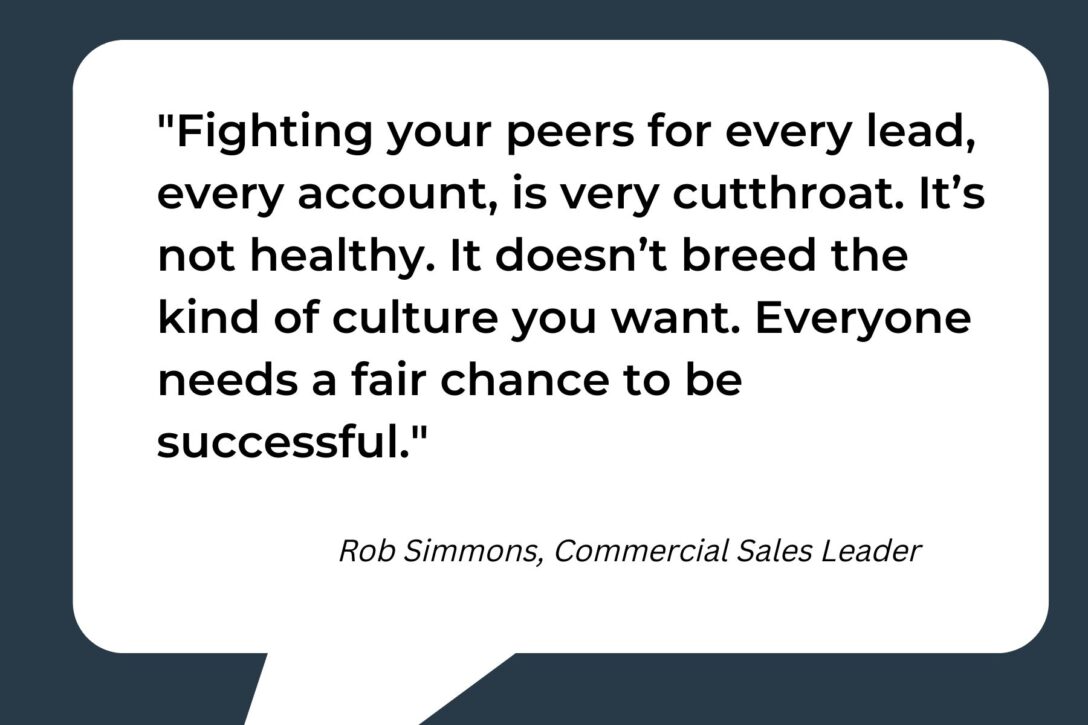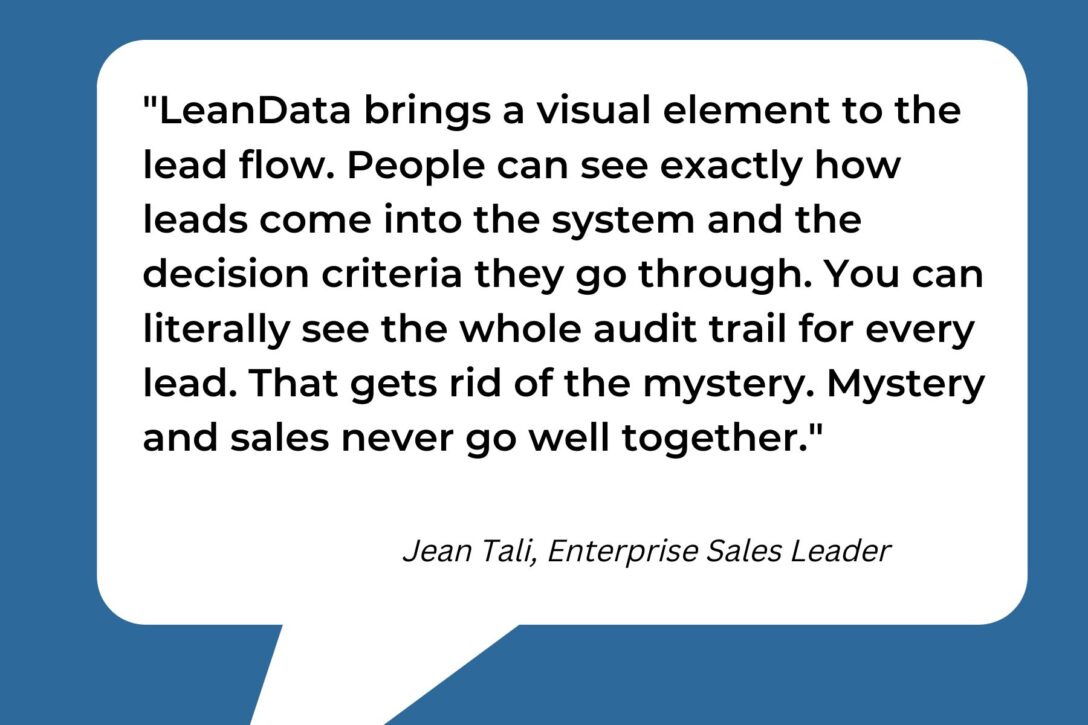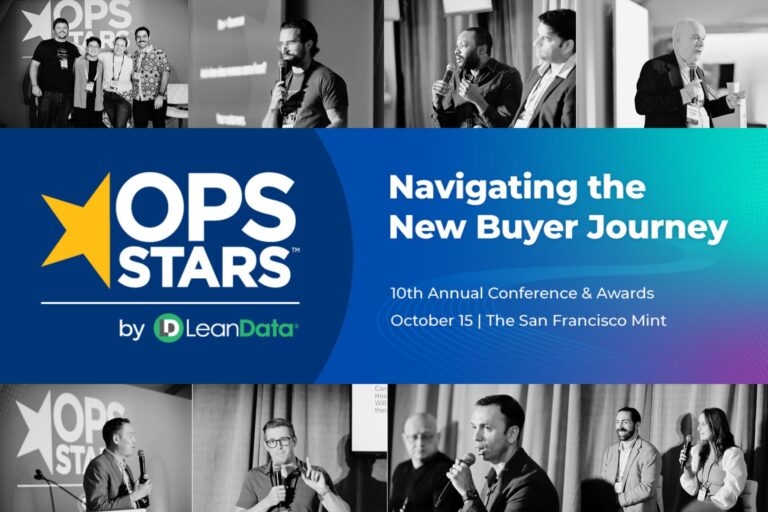Lead distribution strategy is rooted in fairness.
No one expects life to be 100% fair, but expectations are set a little higher in the workplace.
And nothing will make your sales reps quit faster than unfair lead distribution.
It’s a surefire morale killer for any Sales team.
So if you notice reps hoarding accounts in your CRM, bribing SDRs or other designated lead distributors with Starbucks, and behaving more like a pack of ravenous wolves than a cohesive team, it’s time to put measures in place before the exodus begins.

What is Lead Equitability?
Practicing lead equitability means each member of the Sales team has an equal opportunity to receive and work on inbound or outbound leads. No individual or group is consistently favored or disadvantaged.
Some companies struggle with lead equitability because they lack a clear and transparent distribution process, lead quality is inconsistent, or worse, leadership has fallen into the trap of favoritism.
Equitability is typically managed by establishing sales territories, a process outlined in the ebook, Revenue-Driven Sales Territory Planning & Management, which includes:
- Defining your ideal customer profile (ICP)
- Determining the total addressable market (TAM)
- Defining sales territories and responsibilities
- Creating an action plan
- Tracking, measuring and continuously improving
Jean Tali, an experienced enterprise sales leader, said, “Every territory has its own firmographics, demographics, and regional nuances. You have to account for all of those things. So try to develop something that’s equitable. It’s impossible to make it all equal.”
Territories are never a “set it and forget it” practice. As an organization scales, territories change. Sometimes, marketplace forces drive changes to how territories are structured and managed. Other times, change is motivated as a company offers a new product, promotes employees, or assigns new hires.
Regardless of the challenges of territory management, lead equitability is a key factor in building a high-performing Sales team that is motivated, productive, and focused on achieving its goals.

The Role of Managers in Fair Lead Distribution
Sales leadership plays a crucial role in ensuring a fair distribution of leads to their Sales teams. This begins by developing an effective lead allocation strategy that takes into account factors like lead source, lead quality, workload distribution, and overall sales goals.
Since not all leads are equal, Sales managers, with help from Marketing or Demand Gen, should establish criteria for lead prioritization. This is often managed through a lead scoring model, a system for evaluating leads. Lead scoring models assign points to a lead based on a number of different factors that evaluate the level of interest in your product.
Equal distribution of all types of leads — high, medium, and low-priority, can be accomplished through round robins. In this approach, each salesperson in the team receives leads in a rotating or sequential manner, taking turns until all team members have received an equal share of leads.
Then, with established systems in place, a Sales manager can maintain fair lead distribution by focusing on three areas: transparency, change management, and reporting.
Tali said, “I believe in being transparent. Then, you can always point your employees to the documentation and say, ‘Here’s how we organize the business. Here’s how we went about designing territories.’ It helps to lay it all out. The more transparent you are, the more trust people have in the system.”
Have a clearly defined process for sales representatives to request changes in territories or changes to lead distribution. In addition, provide detailed reporting so everyone can see how leads are distributed.

The Role of Technology in Fair Lead Distribution
As you may imagine, there are technology platforms that can help with every step of your lead management process. Sales territory mapping software like Xactly AlignStar, Fullcast, or BoogieBoard will remove the pains of manually assigning accounts and struggling with territories in spreadsheets.
Platforms like 6sense, Bombara, Madkudu can automate the lead scoring process, providing insight into which prospects are ready to buy.
For lead distribution, Salesforce does not support out-of-the-box round robin assignment features. Instead, businesses spend inordinate amounts of time writing code and maintaining complex rules to implement round robin pools. LeanData offers an automated round robin lead assignment solution that supports complex routing rules for leads, contacts, accounts and opportunities.
For example, to solve uneven lead distribution, LeanData customer Everbridge incorporated a round robin routing solution with a service level agreement (SLA) notification flow. As a result, leads are now distributed evenly to both SDRs and sales team members, according to territory management rules, while accounting for time zones and holidays. Plus, team members have greater visibility into the account database and the data itself is cleaner.
These new lead management processes have automated manual processes and simplified routing logics for Everbridge’s territories.

Equitable and Equal Lead Distribution
Sales in today’s recessionary conditions is not an easy job. Inbound leads have decreased, the number of members on a buying committee has increased, and much of the buying journey is conducted anonymously online.
More than ever, fair lead distribution is essential to maintaining a motivated and high-performing sales team. The good news is: equitability and equality, while challenging, are not impossible goals. Sales leadership and technology have the ability to work in tandem to ensure fairness, transparency, and equal opportunity.










